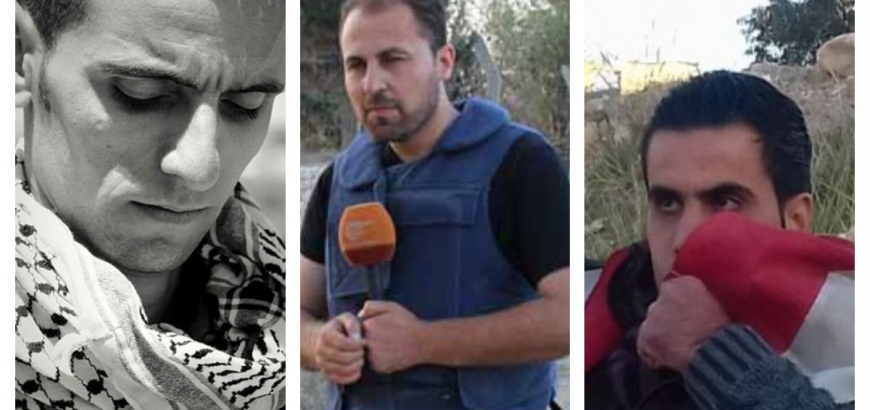The regime has recently pursued a policy of arresting, disappearing and expelling loyalist journalists, which has affected television personalities and other loyalist media figures who have criticized the shortcomings and corruption inside the Assad government. The most recent of these was the well-known Syrian television director Mehran Salah, who was arrested by security forces a few days ago.
It seems that the Assad regime will not tolerate criticism directed at its government and officials within its regime, even from prominent media figures who have supported it and stood by the regime for years and have supported it in its war against Syrians. The limited margin of freedom that had been given them after the revolution broke out is no longer permitted.
This is not Salah’s first arrest, as the Criminal Security branch had previously summoned and investigated him because of his Facebook posts in which he criticized the regime government and its Prime Minister Imad Khamis, according to what Salah told a pro-regime website in February.
Salah was also summoned in December after he criticized the Minister of Awqaf (Religious Endowments) because of Legislative Decree No. 16, which provoked widespread controversy, and which gave the Minister broad powers. The Minister filed a complaint to the “anti-electronic crimes” branch, which then held and interrogated Salah for two hours, before releasing him.
Wissam al-Teir
Two and a half months after his arrest, the fate of the director of the Damascus Now news network, Wissam al-Teir, is still unknown. He was arrested by regime intelligence and taken to an unknown location. Efforts by his family to find out where he is or make contact have failed.
The regime has not announced any charges against Teir, who is known for his fierce loyalty to the regime, and who has previously appeared alongside Asmaa al-Assad after being honored by her. The network he runs is one of the biggest pro-Assad loyalist news networks and since the beginning of the protests in Syria, has supported the regime and attacked the Syrian opposition.
The arrest of Teir sparked criticism of the regime by loyalists and journalists, who asked, “Is there any journalist left in Syria who hasn’t been in prison? Any criticism of the government ends with prison and arrest,” espeically given that Teir is considered one of the most prominent media faces backing Assad.
Hezbollah Loyal Journalists Arrested
The correspondent Omar Drau was the latest journalist to be targeted for their work, despite the fact that part of Drau’s work was with the Lebanese militia Hezbollah. He was arrested by the “information crimes” branch on Aug. 13, 2018, and was sent to an unknown location after a decision to arrest him was issued by a major official in the regime.
The pro-regime Hashtag Syria website noted that Drau worked for them, as well as the Lebanese Al-Manar channel and Al-Nour radio, which are under Hezbollah’s authority, and Al-Medina radio in Syria. The website said that another journalist named Omar al-Azou was also arrested.
Regime security agencies have previously released the loyalist journalists Ehab Awad and Roula al-Saadi, after they were detained for about 20 days, when they were discovered in Umayyad Square at the same time as university students in Damascus participated in a sit-in in the square to call for supplementary courses in October. This was despite the fact that Awad had been among those demobilized from Series 102 in the regime forces, which was maintained for eight years.
Regime measures to silence critical voices from among loyalist media have not been limited to arrests and disappearances alone. A correspodnent for the pro-Iran Al-Mayadin channel, Rida al-Basha, was expelled last month after reporting about the poor economic and living conditions in Aleppo city.
Basha is considered one of the most prominent war correspondents at the channel, and had accompanied Assad forces in a many number of battles against the opposition.
This article was translated and edited by The Syrian Observer. Responsibility for the information and views set out in this article lies entirely with the author.


